Starting a career in stock trading is more than just intuition. It’s about getting the right trading education and solid knowledge. The stock market’s changes demand a strong educational foundation for success. The best degree for trading stocks is a topic of discussion. Yet, certain fields offer vital skills like strong analysis and financial understanding. Such a financial analysis degree can help you in day trading and your future. It’s not about just trading. It’s about becoming a master in the markets with smart strategies.
The trading landscape is always changing. To succeed, it’s crucial to get an education that matches the market’s complexities. A degree focusing on market workings, financial tools, and economic elements is key for growth. Finding the right stock market degree can jumpstart your journey to being a top trader. This applies whether you aim to work in a big investment company or on your own.
Key Takeaways
- Engage with education that boosts analytical skills and offers deep market insight crucial for stock trading.
- Explore degrees with a strong foundation in finance or economics to grasp the intricacies of the trading environment.
- Consider the value of a financial analysis degree for a data-driven approach to market trends.
- Acknowledge the importance of practical knowledge and hands-on experience, which can be components of a comprehensive stock market degree.
- Aim for a curriculum that fosters strategic reasoning and disciplined investment strategies.
- Stay informed about the evolving landscape of trading education to maintain a competitive edge.
The Dynamic Realm of Day Trading
Day trading moves fast and needs quick thinking. Traders must understand market changes and make decisions on the spot. Success in day trading relies on fast decisions and deep knowledge of trading.
Understanding the Day Trader’s Routine
Day traders often begin their days before markets open. They check global news for hints on market movements. It’s not just watching; they strategize around the smallest stock changes. Good trading courses teach the importance of these early morning steps.
Key Skills for Successful Trading
Luck plays a small part in trading; skill is essential. A strong background in investing is key. Understanding market trends and analyzing financial data are vital. Solid education in finance helps traders make smart, data-driven choices.

Day trading blends book smarts with real-world experience. Key areas where knowledge meets trading include:
| Education | Application in Trading |
|---|---|
| Finance Degree | Understanding complex financial instruments |
| Investment Degree | Portfolio management and risk assessment |
| Financial Analysis | Real-time market and data analysis |
| Trading Courses | Strategic decision-making and operational tactics |
Success in stock trading needs constant learning and adapting. Each day, traders face new challenges. By mixing formal education with real trading experience, they improve their skills and grow.
The Best Degree for Trading Stocks
Finding the perfect educational path is key for success in trading. While there isn’t just one single best degree for trading stocks, some areas of study do stand out. Fields like finance and economics offer deep insights into the world of trading.
A finance degree looks closely at financial markets and banking. It helps students understand market dynamics. An economic degree focuses on economic theories and models. This knowledge can help traders predict market trends by examining policy impacts and economic data.
Degrees that focus on statistics and math can also be very useful. They are great for creating trading algorithms and managing risks effectively.
| Degree Type | Key Focus Areas | Relevance to Stock Trading |
|---|---|---|
| Finance | Market analysis, Financial instruments, Corporate finance | Direct application in trading strategies and financial decision-making |
| Economics | Economic theories, Policy analysis, Economic indicators | Useful for macro-level analysis and predicting market impacts |
| Quantitative Fields (e.g., Statistics) | Data analysis, Probability, Algorithmic trading | Essential for technical trading and modeling financial markets |
In the end, a degree that focuses on the stock market directly might be the best choice. But, classic degrees in finance and economics are strong options too. They lay a solid groundwork. Real-life trading experience also helps round out a trader’s skill set.

Exploring Finance Degrees for Stock Trading Careers
If you want to get into stock trading, a finance degree is key. Such a degree teaches you a lot about financial analysis as well as investment decisions. It gets you familiar with things like derivatives and fixed income securities, important for today’s markets.
Unpacking Undergraduate Finance Skills
Finance programs at the start give a mix of theory and practice in money matters. They cover things like derivatives, basic to hard accounting principles, and the basics of corporate finance. To get in, you usually need a good GPA. This shows how tough and focused on finance these programs are. They’re all about getting you ready to make smart investment decisions.
Portfolio Management as a Learning Tool
For finance students, hands-on learning in portfolio management is key. It lets them put their book knowledge into practice. This makes them ready for real trading and investment situations. So, when it comes to making investment decisions and managing portfolios, they’re ahead.
The table below lets you see what a typical business degree and a focused finance degree each teach. It highlights what you would learn in stock trading.
| Course Focus | Business Degree | Finance Degree |
|---|---|---|
| Financial Analysis | Basic Principles | Advanced Techniques |
| Investment Decisions | General Overview | Detailed Strategies |
| Derivatives | Introductory | Comprehensive Analysis |
| Fixed Income Securities | Overview | In-depth Study |
| Portfolio Management | Basic | Complex Simulations |
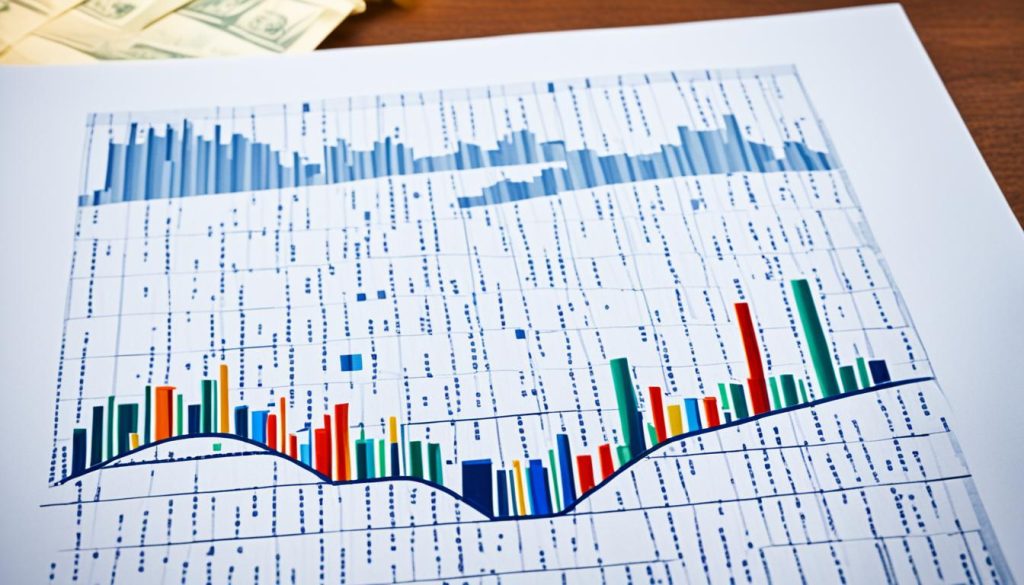
Economics: The Macro View for Strategizing Trades
Having an economics degree is vital for traders. It helps them use business cycles and economic indicators in their plans. This understanding prepares them for economic shocks and helps them deal with market complexities.
The Impact of Economic Indicators on Trading
Good trading relies on knowing and reacting to key economic indicators. Things like GDP growth or unemployment rates are crucial. Understanding such info through education helps traders predict markets and make better decisions.
Historical Patterns and Market Predictability
In an economics degree, you learn about past market trends and business cycles. This info boosts a trader’s skill to guess and use market shifts. It might lead to better trading results.
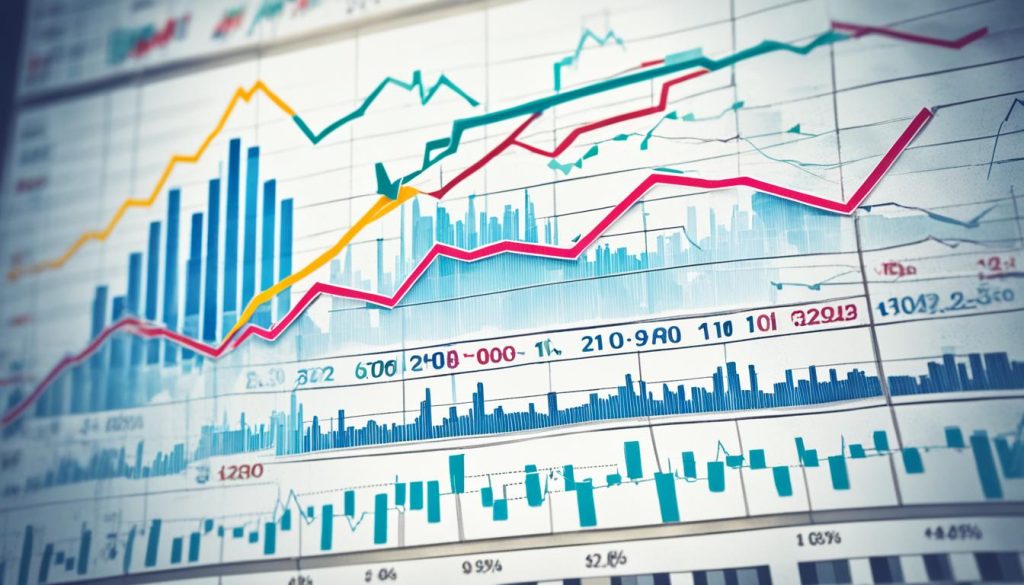
Taking cues from monetary policy and history can change how a trader approaches daily trading. It can evolve from just reacting, to strategically predicting market moves.
| Economic Indicator | Impact on Market | Relevance in Trading Education |
|---|---|---|
| Interest Rates | Directly affects currency value and stock prices | High |
| Inflation Rates | Influences purchasing power and consumer prices | Medium |
| GDP Growth | Reflects overall economic health and investment attractiveness | High |
| Unemployment Rates | Indicates economic stability and labor market strength | Medium |
With a deep grasp of economics degrees, traders can adjust their methods to see and adapt to market changes. This strategy boosts their ability to trade well, even in the face of economic shocks.
Technology’s Edge in Trading: Computer Science and Statistics
In trading, technology has made a huge impact. Traders now rely on computer science degrees and statistics degrees. These skills help to handle big data and create advanced trading plans. This mix of tech know-how leads to progress in quantitative finance and financial engineering.
The field highlights the importance of algorithmic trading and data strategies. Computer science and statistics provide key tools for this. The ability to understand and use mathematical models is crucial. This includes machine learning, probability, and using statistics for best trades.

Financial engineering programs offer various paths into trading. They combine strong math with real-world finance. Graduates are ready for important roles in finance companies and hedge funds. They use math to manage risks and set prices for financial products.
Using both computer science and stats boosts how well you perform. It also helps you stay ahead in the trading market.
Computer science and statistics work together powerfully in trading. They are key in financial engineering and quantitative finance. With markets always changing, these skills are essential. They help traders handle tricky and changing financial markets.
Quantitative Analysis: The Backbone of Trading Strategies
Quantitative analysis is crucial for today’s trading. It uses stats to forecast market moves. Understanding this, which you often learn in finance school, helps traders mix math with market needs. This leads to more effective trading strategies. It’s all about connecting math’s abstract theories with market realities.
Discovering the Intersection of Math and Market Analysis
Being good at trading means turning complex numbers into smart moves. To navigate derivatives trading, you need quantitative skills. Combining physics, math, or engineering with finance helps a lot. It makes you sharp at analyzing the tons of data in financial markets.
Engineering the Future of Derivatives Trading
Today, trading leaders come from physics and engineering backgrounds. Their education prepares them to understand and influence market volatility with solid logic. These studies set a great base. They prepare traders for a future where skillful strategy-making is key. Looking ahead, physics and engineering will shape trading’s future.

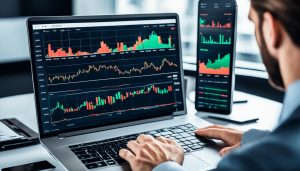
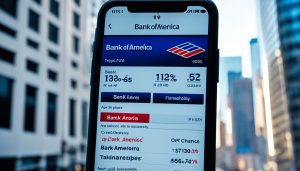
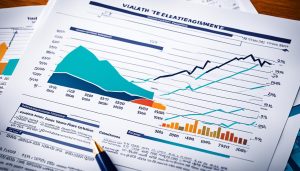
No comments! Be the first commenter?